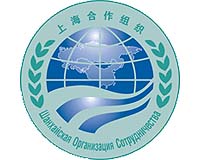| . |  |
. |
Vienna (AFP) June 15, 2009 Iran's nuclear programme was in the spotlight of a meeting of the UN atomic watchdog here Monday, following the country's disputed presidential election. In his opening address to the International Atomic Energy Agency's 35-member board, director general Mohamed ElBaradei urged Tehran to take up the US offer of dialogue over its disputed programme. "I am encouraged by the new initiative of the United State to engage Iran in direct dialogue, without preconditions and on the basis of mutual respect," said the Egyptian-born diplomat who is scheduled to step down as IAEA chief in November after 12 years in office. "I hope that Iran will respond to the US initiative with an equal gesture of goodwill and trust-building. It is my hope that the dialogue will begin as soon as possible," he said. ElBaradei made no reference in his speech to the landslide re-election in Iran at the weekend of hardline President Mahmoud Ahmadinejad. The world had been closely watching the election for any signs of a shift in policy after four years of anti-Western and anti-Israeli rhetoric from Ahmadinejad amid the nuclear standoff. But Ahmadinejad has vowed to continue on the same path in his next mandate. According to the IAEA's latest report on Iran, the Islamic republic is still defying the UN Security Council and has so far amassed 1,339 (2,946 pounds) kilogrammes of low-enriched uranium hexafluoride (UF6). Estimates vary, but analysts calculate that between 1,000 and 1,700 kilogrammes of low-enriched uranium would be needed to convert it into enough highly-enriched uranium to make a single atomic bomb. The UN Security Council has ordered Iran to suspend all enrichment-related activities, until the IAEA has been able to verify the exact nature of Tehran's programme. But Tehran has ignored such calls, increasing the number of centrifuges actively enriching uranium and installing more of the devices at its Natanz plant and . Western powers fear that Iran wants to build an atomic bomb, but Tehran insists it merely aims to produce civilian nuclear energy. Turning to Syria, where the IAEA has also made little substantial progress in its probe into alleged illicit nuclear work, ElBaradei said the "limited information and access provided by Syria" was similarly "regrettable". The IAEA has been investigating allegations of illicit nuclear work by Syria since last year. Washington alleges that a remote desert site -- known alternatively as Dair Alzour or Al-Kibar -- was an undeclared nuclear reactor until it was bombed by Israeli planes in September 2007. The IAEA has said that the building bore some of the characteristics of a nuclear facility and UN inspectors had also detected "significant" traces of man-made uranium there, as yet unexplained by Damascus. IAEA inspectors have also found uranium particles at a research reactor near Damascus that would not normally be expected there. "The agency needs to understand the presence and origin of the uranium particles found at both sides," ElBaradei said, urging Syria to be "fully coopoerative and transparent." The IAEA chief also spoke about North Korea, which the UN targeted in a new resolution at the weekend following its decision to test a long-range missile and a nuclear bomb and pull out of six-nation disarmament talks. The proclaimed nuclear test was "a wrong step in the wrong direction... I deeply regret this," ElBaradei said. North Korea announced in mid-April that it was ceasing all cooperation with the IAEA, ordered the agency to remove all containment and surveillance equipment from the Yongbyon nuclear facilities and asked IAEA inspectors to leave the country. Share This Article With Planet Earth
Related Links Learn about nuclear weapons doctrine and defense at SpaceWar.com Learn about missile defense at SpaceWar.com All about missiles at SpaceWar.com Learn about the Superpowers of the 21st Century at SpaceWar.com
 Russia hosts summit minus Ahmadinejad
Russia hosts summit minus AhmadinejadYekaterinburg, Russia (AFP) June 15, 2009 Russia Monday hosted a summit of a security forum seen as a counter to US power but without Iranian President Mahmoud Ahmadinejad, who put off his trip after his disputed re-election. Officials said that Ahmadinejad would not be appearing on the first day of the Shanghai Cooperation Organization (SCO) summit in the central Russian city of Yekaterinburg, but was still expected to arrive on ... read more |
|
| The content herein, unless otherwise known to be public domain, are Copyright 1995-2009 - SpaceDaily. AFP and UPI Wire Stories are copyright Agence France-Presse and United Press International. ESA Portal Reports are copyright European Space Agency. All NASA sourced material is public domain. Additional copyrights may apply in whole or part to other bona fide parties. Advertising does not imply endorsement,agreement or approval of any opinions, statements or information provided by SpaceDaily on any Web page published or hosted by SpaceDaily. Privacy Statement |